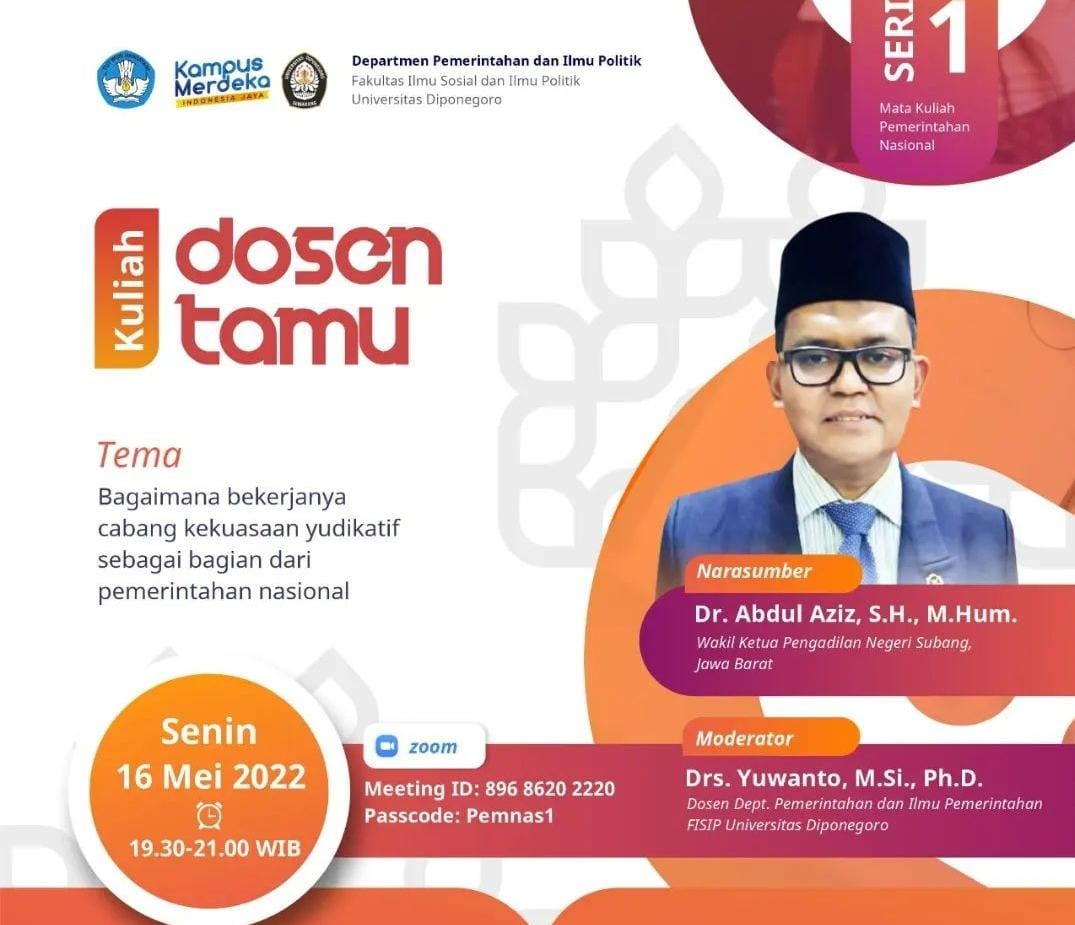Dr. Abdul Aziz, S.H., M.Hum (Deputy Chairperson of the Subang District Court, West Java) became a resource person in the Guest Lecture of the Department of Governance and Political Sciences, Faculty of Social and Political Sciences (FISIP) Diponegoro University (Undip), moderated by Drs. Yuwanto, M.Si, Ph.D (Lecturer of the Department of Governance and Political Sciences Undip) (16/5). The theme raised is “How the Judicial Power Branch Works as Part of the National Government”.
In the material presented by Dr. Abdul Aziz, S.H., M.Hum regarding “The Operation of the Judicial Power Branch as Part of the National Government” explained that the 1945 Constitution of the Republic of Indonesia was enacted on August 18, 1945, re-enacted by a Presidential Decree on July 5, 1959 and confirmed by acclamation on July 22, 1959 by the House of Representatives (as stated in the State Gazette Number 75 of 1959).
State institutions that hold power according to the law are the House of Representatives (DPR), the President, the Supreme Court (MA), and the Constitutional Court (MK). Article 20 (1) DPR holds the power to make laws, Article 4 (1) the President holds government power, the MA and the MK in article 24 (1) judicial power is an independent power to administer justice to uphold law and justice. Meanwhile, the MPR’s authority includes selecting the President and Vice President from two pairs of candidates for President and Vice President proposed by a political party or coalition of political parties whose pairs of candidates for President and Vice President won the first and second most votes in the previous general election until the end of their term of office, if the president dies, quits, is dismissed, or is unable to carry out his obligations during his tenure at the same time (article 8 paragraph (3)).
“The powers, obligations, and rights of the president or vice president include holds governmental power according to the constitution; has the right to submit bills to the DPR; stipulates government regulations; upholds the constitution and carries out all laws and regulations in a straight line and is devoted to the nation; holds the highest power over the army, navy and air force; declares war; makes peace and agreements with other countries with the approval of the DPR; makes other international agreements with the approval of the DPR; declares a state of danger; appoints ambassadors and consuls. In appointing ambassadors, the President takes into account the considerations of the DPR. Accepting the placement of ambassadors from other countries by taking into account the DPR’s considerations; granting pardons and rehabilitation by taking into account the considerations of the MA; granting amnesties and abolitions taking into account the DPR’s considerations; granting titles, honors, and other honors as regulated by law; forming a board of consideration tasked with providing advice and considerations to the President,” he explained. (Lin – Public Relations)

